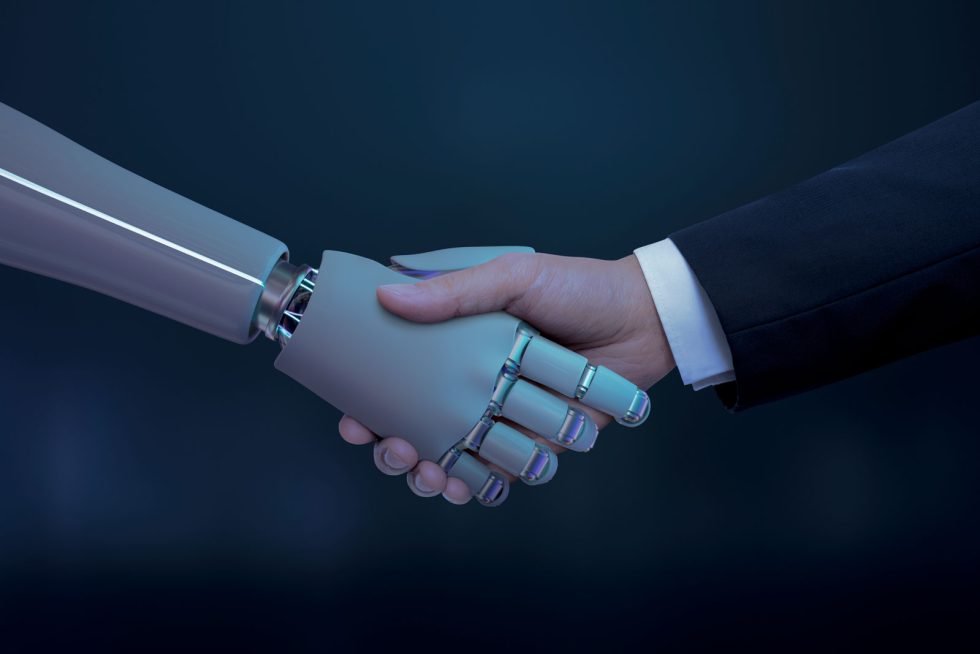’’We cannot solve our problems with the same thinking we used to create them.’’
– Albert Einstein
Over the past two decades, technology has revolutionized our world and transformed the way we connect, communicate and engage with one another. I remember the days, in the 1990s, when I had to use the telephone line to connect to the Internet. Today, we have any and all information at our fingertips, in a matter of seconds.
More than two-thirds of the world’s population uses a mobile phone today, with global users increasing by almost 100 million (+1.9%) over the past 12 months to reach 5.29 billion in October 2021. In addition, 62% of the world’s population are active Internet users (4.88 billion), which has increased by more than 220 million (+4.8%) over the past year alone. The coronavirus pandemic was a key factor to this rapid increase, forcing consumers globally to turn to digital communication and acquisition for essential and non-essential goods. On average, global consumers spend 42% of their time online during the height of the pandemic.
In addition, companies were forced to embrace the low-touch economy by quickly putting in place solutions to meet these new digital demands. According to a recent McKinsey survey of global executives companies have accelerated digitization of their customer interactions by up to 3-4 years, and the share of digitally enabled products in their portfolios have accelerated by up to 7 years.
The increased global connectivity and accessibility has triggered a shift in behaviour in alignment with the increasingly digital world we live in. As consumers, we are adopting technology almost as quickly as it is being developed. And, we have become accustomed to digitally-enabled businesses that offer hyper-personalized services seamlessly across multiple channels and touchpoints, predicting our need and wants, sometimes even before we know it. Now, we are demanding this same level of responsive interaction from any company or brand that we interact with in our daily lives.
As our lives transform, the way businesses operate, what they offer, and how they interact with us needs to change as well. Companies stuck in the traditional way of doing things will not survive for long in this new hybrid world that we live in where digital and physical are converging. For over two decades, I have advised multinational companies across industries and regions on strategy development, technology implementation and business optimization. This experience gave me the unique opportunity to observe the shifts in the global business landscape first-hand. Emerging technologies paved the way for new digitally-enabled companies to displace traditional dominant business models.
In recent years, the speed of technology development has accelerated significantly. For example, Artificial Intelligence research and development has existed since the early 1950s. However, it was only in the past decade or so that it truly accelerated and application has exploded across industries. A key reason is that we now have the right foundation elements in place to support this acceleration – unparalleled processing power, unlimited storage capacity, global connectivity and accessibility, as well as the low cost of technology production. These elements have come together to create a perfect storm – technologies that are enabling new capabilities and solutions to create transformations across global industries.
Companies built in the digital age have an abundance mindset – they leverage these technology solutions to create new business models that create new value in the market, and extend their business reach virtually anywhere, anytime, leveraging digital platforms to scale and replicate digital customer experience at low cost. Traditional incumbent organizations are still stuck in a scarcity mindset – playing within the limitations created by physical assets, customer demographics, as well as regional and industry boundaries.
In Europe, we live in a world dominated by live streaming, smartphones and social networks. New technology solutions are being developed for almost every industry, ranging from connected, smart devices to autonomous vehicles, 3D-printed infrastructure, drones, artificial intelligence and blockchain technology. Over the next decade, 5G wireless network deployment will support 1,000-fold gains in capacity, connections for at least 100 billion devices and a 10 Gb/s individual user experience of extremely low latency and response times. In a digital ecosystem that is transitioning from social, mobile, analytics and cloud (SMAC) to the distributed ledger and quantum computing, we will increasingly need to implement better cyber-security, policies and regulations, as well as a trained workforce to manage this ecosystem.
In the global arena, the COVID-19 pandemic illuminated a long-standing issue: billions of people remain without the universal human right of internet access. The world is increasingly going digital but much still need to be done on the continent to increase internet penetration. However, many rural and low-income communities around the world, including those in large urban areas, lack reliable, affordable access. More importantly, wireless technology is no longer just important for consumers and entertainment; it is rapidly becoming critical to how we connect everything in the digital world, from smart home systems to autonomous vehicles. As a general reference, the individuals who are excluded from the Internet access belong to the weakest sections of the population.
The ethos of WICMI is about sharing knowledge to enable empowerment of the individual or organisation to better harness the potential of technology and data for the benefit of us all. In alignment with this, I believe there are several areas in which we could create a transformative impact.
Firstly, sharing expertise, knowledge and experience in digital business transformation. The coronavirus pandemic offers companies an opportunity to make a unique choice – re-establish what they had before the pandemic hit, or take this opportunity to transform into something better enabled by technology solutions. What traditional companies and brands have built to-date, no matter how successful, will not take them into the digital future with sustainable success. As people change and adapt to the digital age, new business models emerge and competitive landscape shifts, traditional businesses will need to transform or face existential challenges. By embracing digital transformation – the organization-wide transformation of customer experiences, products and services, people and processes, as well as business models – companies will be able to create a sustainable business for the future.
Secondly, supporting the global drive for transformative change in closing the digital divide. The consequence of the enormous potential offered by the Internet is the need of guaranteeing free access to the web to the world’s population, mainly through the adoption of suitable public policies. Although the United Nations Human Rights Council has explicitly declared that Internet is a fundamental human right, the obligation to facilitate easy and affordable access to connectivity falls on each country. The expression ‘digital divide’ is often replaced by terms such as digital accessibility, digital skills or media literacy. The digital divide relates to the lack of access to ICT technologies and mobile connectivity, which is exploited by almost 95% of the global population.
Equal access to the internet goes hand in hand with equal economic and social conditions that countries must ensure for their citizens. It is important to provide the younger generations with adequate digital education in order to raise good digital citizens and improve the media literacy of all sections of the population, especially vulnerable minorities.
Thirdly, creating diversity and fairness across all areas of technology development and application. As we develop new technology solutions with global transformative impacts, having a diverse group of people involved will ensure the solutions meet the needs of the global population. By driving education and knowledge exchange across industries, we can make a conscious effort to create a more equal ‘digital’ future. In addition, technology companies need to be held at a higher standard, much like has been enforced in regulated industries such as financial services, healthcare and pharmaceutical. The technology companies of today have access to resources, data and emerging technologies that could change the way the world operates across every aspect of our lives. Regulatory frameworks developed through a deep understand technology capabilities and risks would ensure that ethical boundaries are adhered to.
We are facing a brave new world of technology, data and business. As we delve deeper into this hybrid digital-physical world, having the access to expertise and knowledge, as well as building a strong network of like-minded people ready to commit to the positive transformation will be critical.





